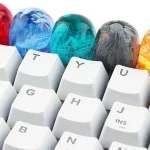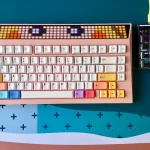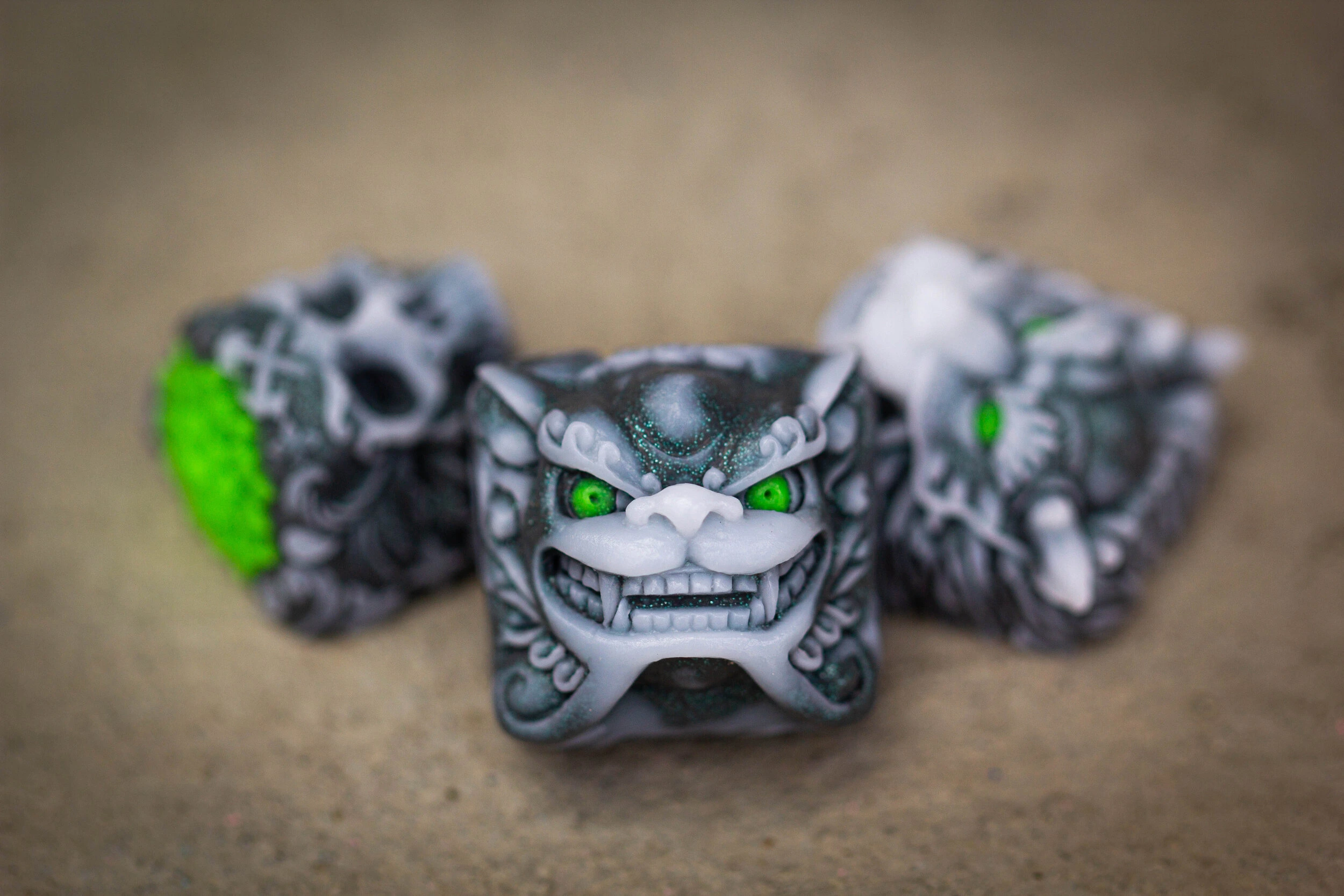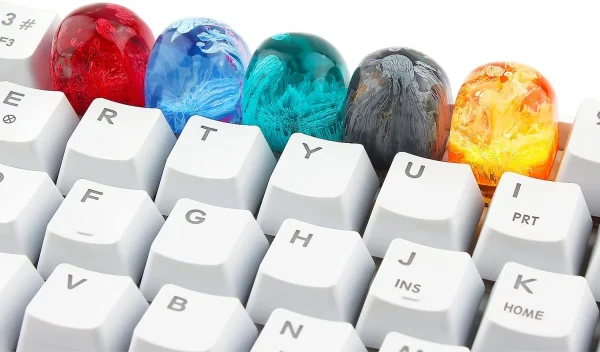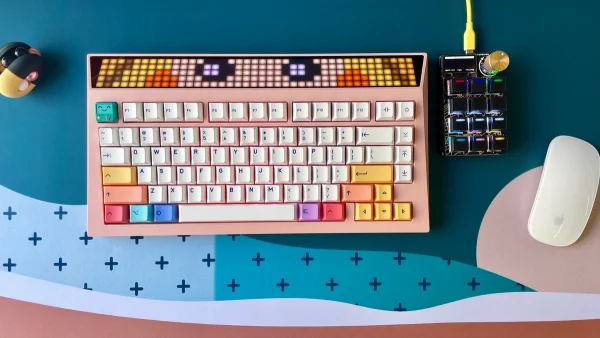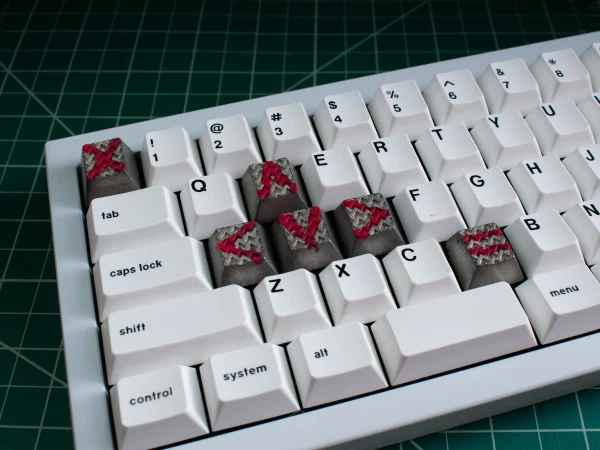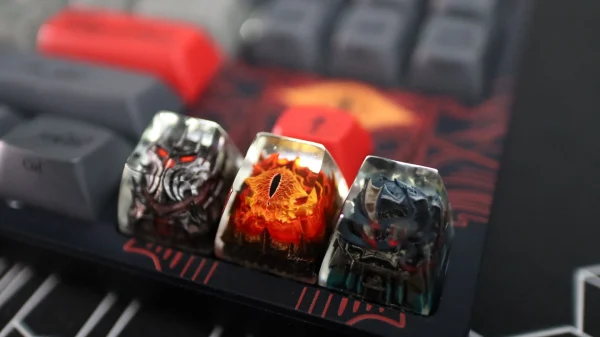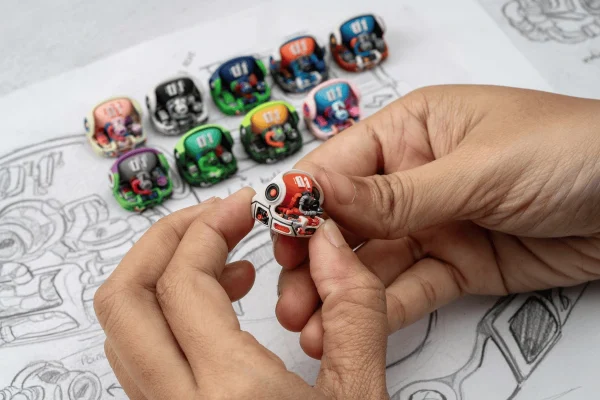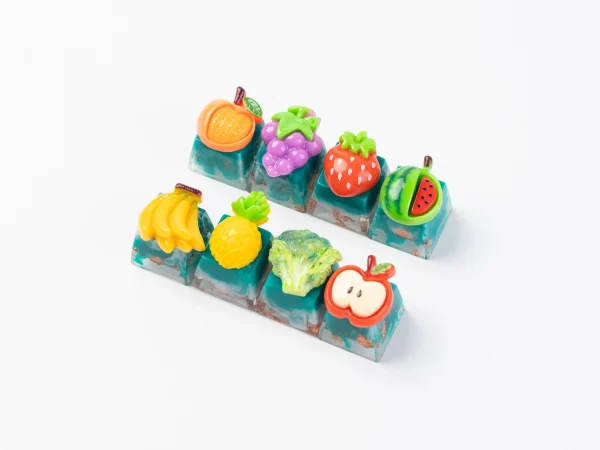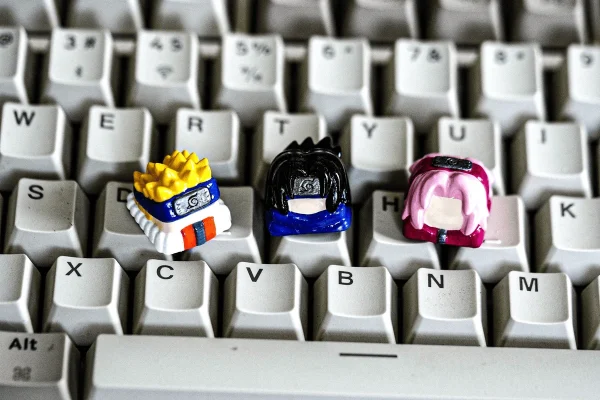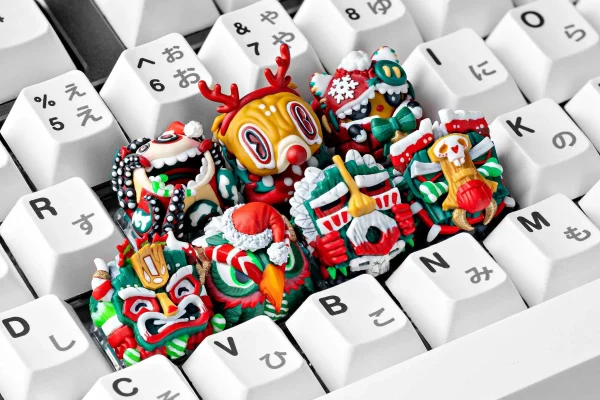6 Difference Between Sculpted and Flat Artisan Keycaps
Uncover the 6 main differences between sculpted vs flat keycaps.
6 Differences Between Sculpted and Flat Artisan Keycaps
Choosing the right artisan keycap profile can transform your typing comfort and desk aesthetics. In this article, we explore the 6 differences between sculpted and flat artisan keycaps—from row shape and finger guidance to sound signature and customization flexibility—so you can make an informed choice for your next keyboard build. Dive in, then browse MCraftin’s curated selection to find your perfect match!
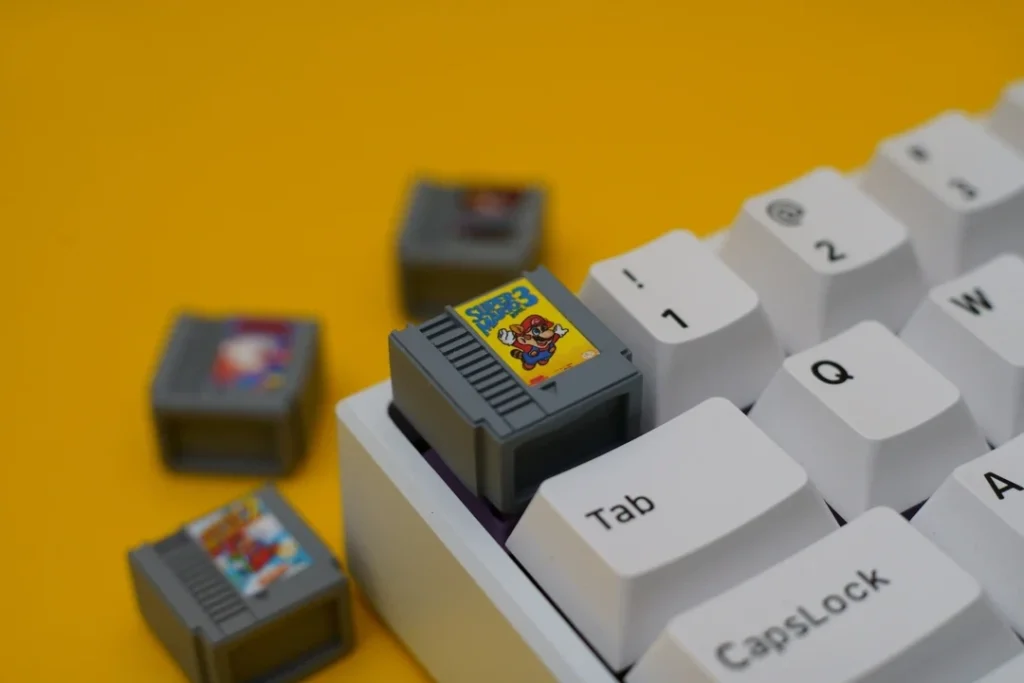
1. Row Contours vs Uniform Surface
Sculpted keycaps feature contoured rows, with each row at a different height and angle to guide your fingertips naturally across the board. This ergonomic curvature can reduce finger travel and improve accuracy over long typing sessions.
Flat keycaps, by contrast, maintain the same height and shape on every row, creating a sleek, uniform appearance and consistent feel, ideal for layouts where you frequently swap keys or use ortholinear designs.
2. Typing Comfort and Ergonomics
With their graduated row profiles, sculpted keycaps (e.g., SA, Cherry, OEM) offer a more pronounced “handwriting” curve that supports touch typing and can alleviate wrist strain. Flat keycaps (e.g., DSA, XDA) deliver a level plane that some typists find faster for rapid keypresses, though they lack the ergonomic guidance of sculpted sets.
3. Sound Signature
The height and shape of a keycap greatly influence the acoustics of each keystroke. Sculpted profiles—taller and often thicker—tend to produce a deeper, more resonant “thock” sound beloved by enthusiasts. Flat keycaps, being shorter and thinner, give a crisper, higher-pitched click that can be preferable for office or shared environments.
4. Aesthetic Appeal
Sculpted artisan keycaps create dynamic, sculptural vistas on your keyboard, with their rising and falling profiles adding visual depth. Flat keycaps offer a minimalist, modern look, allowing intricate surface artwork or dye-sublimation legends to shine without row‑by‑row disruption.
5. Customization & Key Swapping
Because each row of sculpted keycaps has a unique height and angle, you can’t freely rearrange them without sacrificing ergonomic intent. Flat keycaps, however, are fully uniform—perfect for users who enjoy reconfiguring layouts or swapping caps between keyboards without worrying about profile mismatches.
6. Profile Variety & Availability
Sculpted profiles come in many classic variants—SA for a vintage vibe, Cherry for balanced ergonomics, OEM for factory familiarity, and MT3 for deep concave comfort. Flat profiles include DSA for a small, spherical top and XDA for a larger, flatter surface. Your choice depends on typing style and visual preference.
Sculpted vs Flat Keycaps: Which Should You Choose?
For Touch Typists & Ergonomics: Opt for sculpted profiles (Cherry, SA) to benefit from finger guidance and reduced travel distance.
For Gamers & Layout Flexibility: Choose flat profiles (DSA, XDA) for uniform feedback and easy keycap rearrangement.
For Aesthetic Focus: Sculpted caps enhance visual depth; flats showcase intricate surface artwork without interruption.
Conclusion
Understanding the difference between sculpted and flat artisan keycaps empowers you to tailor your keyboard’s feel, sound, and look to your preferences. Whether you prioritize ergonomic contours or a sleek, uniform surface, MCraftin offers a diverse selection of both sculpted and flat artisan keycaps to match your style.
Ready to upgrade? Explore our curated artisan keycap collections at MCraftin today!


